On the 12th day of the third month of the Islamic calendar, Rabi’i Al-Awal, Muslims from around the world celebrate Al-Mouled El-Nabawy, the birth of Prophet Mohammed. And while celebrations differ among Muslims around the world, sweets are the one thing we all agree on during the happy celebrations. In the Middle East, Egypt is known for going all out when it comes to festivities, from Ramadan to Eid Al-Fitr and Eid Al-Adha, Egypt wins every time. But this time we decided to shed light on how other Arab countries, including Egypt, celebrate Al-Mouled El-Nabawy and what sweets and delights they usually prepare.
Scroll down to check them out!
Egypt
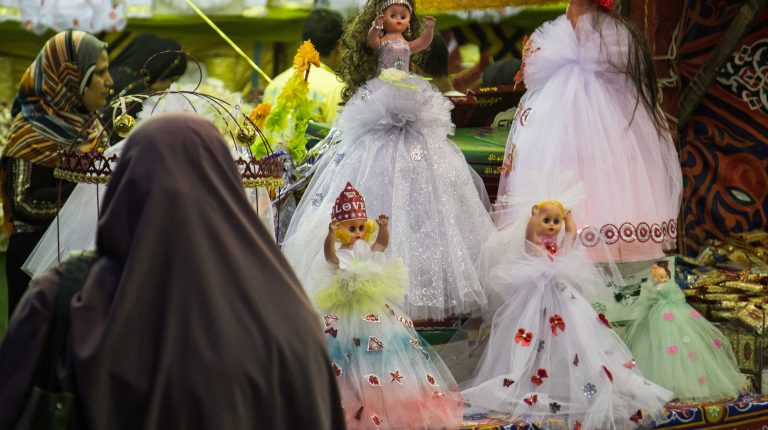
Every year Egypt anticipates the big event where certain traditions and customs take place. Parents usually take their children to sweet shops or bakeries to buy Arouset Al-Mouled; colorful sugar-syrup dolls and the traditional Hosan Al-Mouled; horses made of sugar syrup, as well as traditional sweets made of peanuts, sesame seeds, coconut, and chickpeas. All of these sweets have been a source of happiness and joy all around Egypt.
Iraq
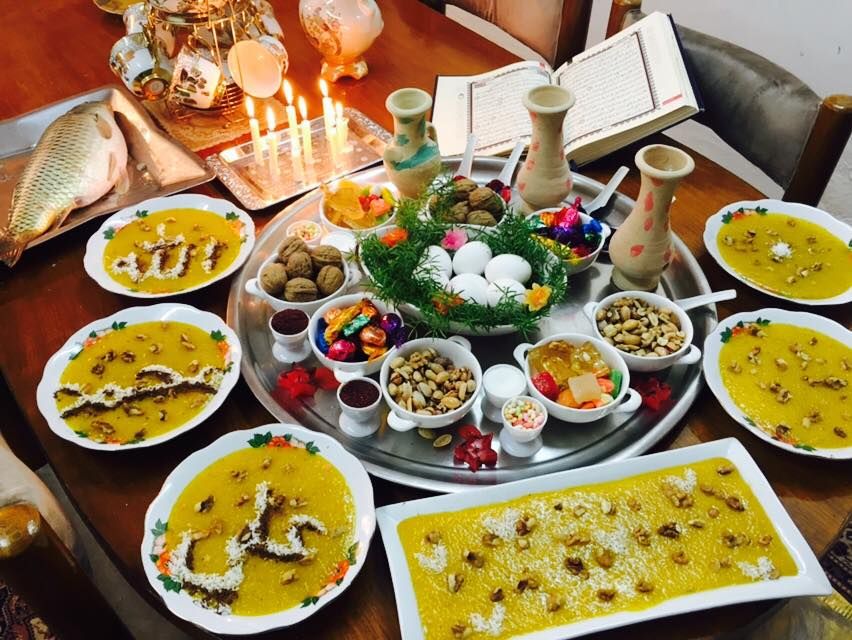
According to history, Al-Mouled El-Nabawy’s first-ever celebration was inaugurated by Muẓaffar al-Dīn Gökburi, brother-in-law of the Ayyūbid sultan Saladin in Erbil, Iraq. Sunis of Iraq usually celebrate this occasion with their famous delight dish called ‘Zarda’ that’s made of rice, sugar, rose water, cardamom, and finally decorated with cinnamon.
On the other hand, in Iraq’s Kurdistan, celebrations consist of gatherings in circles where women pound on tambourines along with men chanting religious songs to celebrate the prophet’s birth. Candles are lit, mosques are beautifully decorated with lights, and you can hear the muezzin praising God and the prophet all day long.
Syria
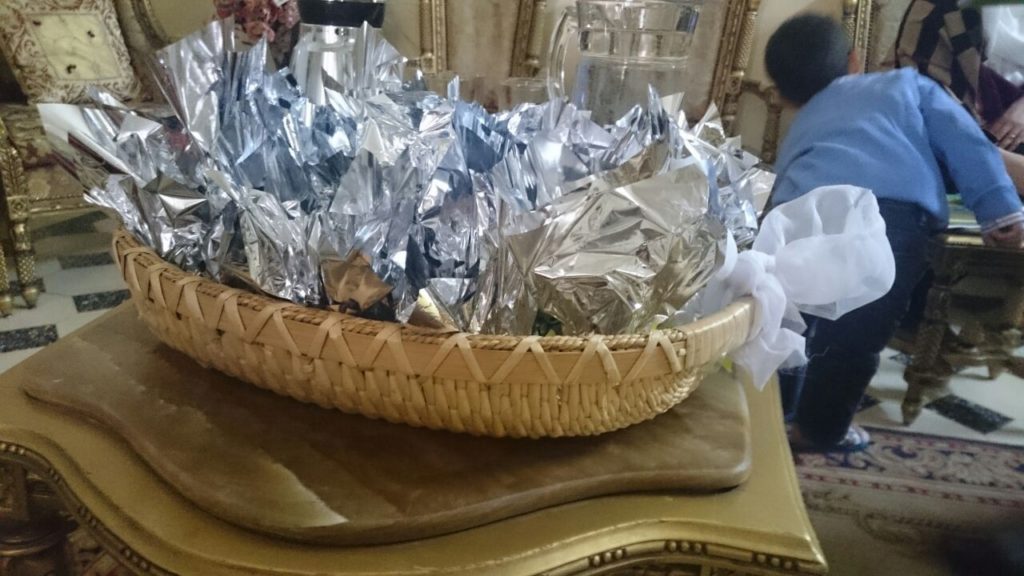
Muslims in Damascus usually celebrate Al-Mouled El-Nabawy by going to the beautifully decorated mosques with the participation of clerics. They’d wake up to the sound of mosques reciting the Qur’an along with circles singing religious songs ‘muwashahat’ to praise the prophet.
Parents would also take their kids to buy sweets from the market that’s usually filled with light decorations, flags, and candies covered in cellophane to celebrate the occasion.
Palestine
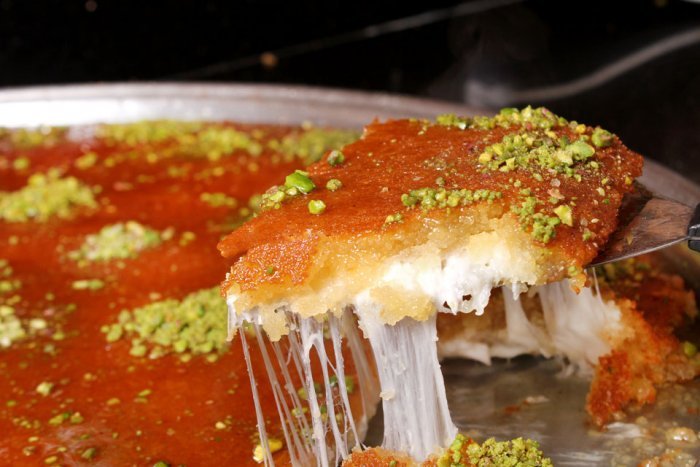
In the beautiful Palestine Muslims usually celebrate the occasion by holding religious circles to recite ‘muashahat’ and songs to praise the prophet. Kalnamora and Kunafa are the main and most important delight to celebrate the day.
Kingdom of Saudi Arabia
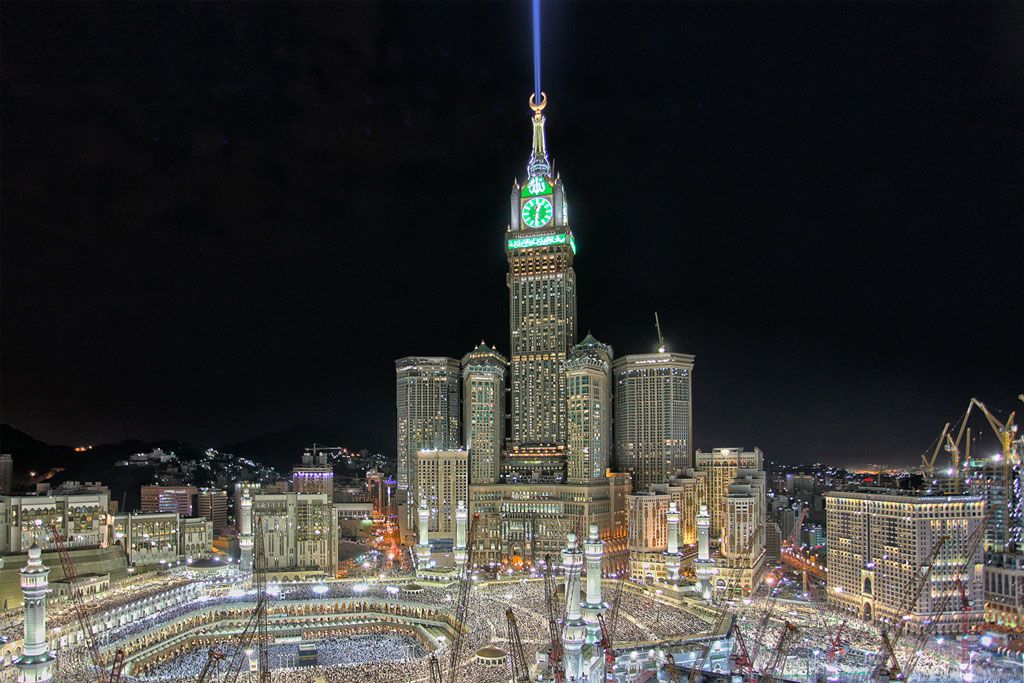
Saudi Arabia is one of the countries that don’t consider Al-Mouled El-Nabawy a national holiday, but celebrations take place anyway. Islamic sermons are heard all over the kingdom while people exchange visits over launch or dinner where they prepare some delicious Saudi dishes to observe the joyous occasion.
The best part of the celebration in the kingdom is the lighting of the 16 beams of the Grand’s Mosque of Makkah’s clock tower. The range of those lights reaches 10 kilometers to the top that brightens the whole area.
Libya
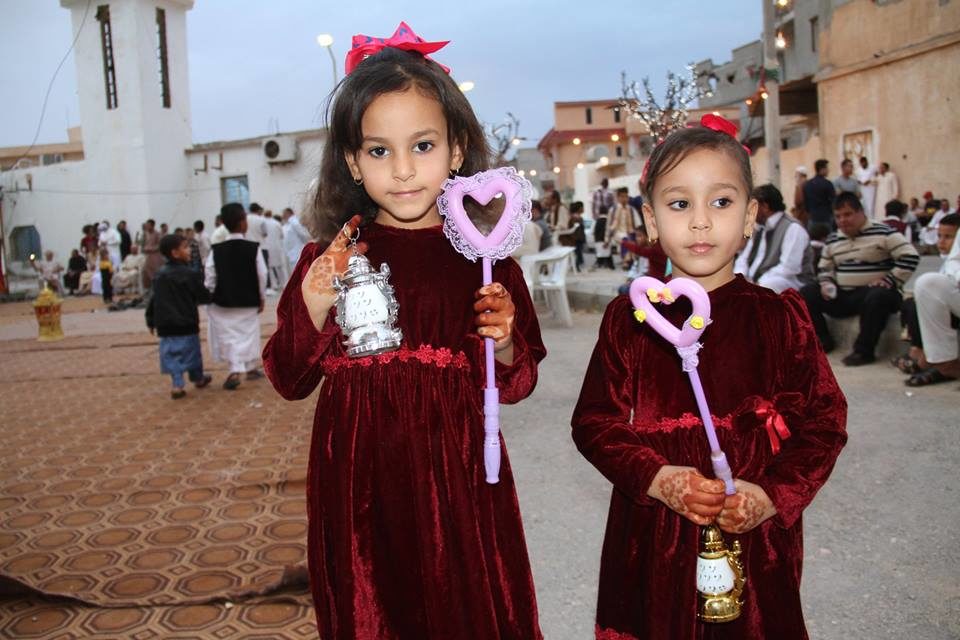
Celebrations in Libya have more of a cultural character, it begins in mosques where muezzins recite the Qur’an and preaching lessons that aim to praise the prophet, clerics start to distribute tea, candy with incense lit everywhere.
Parents buy gifts for their kids; which is a handcrafted wooden tree that’s decorated with white, red, and pink roses along with stars and fireworks, next to it they lit candles for the prophet. Boys would stand in front of the house holding lanterns, and girls carrying candles, and both chanting Mouled songs.


